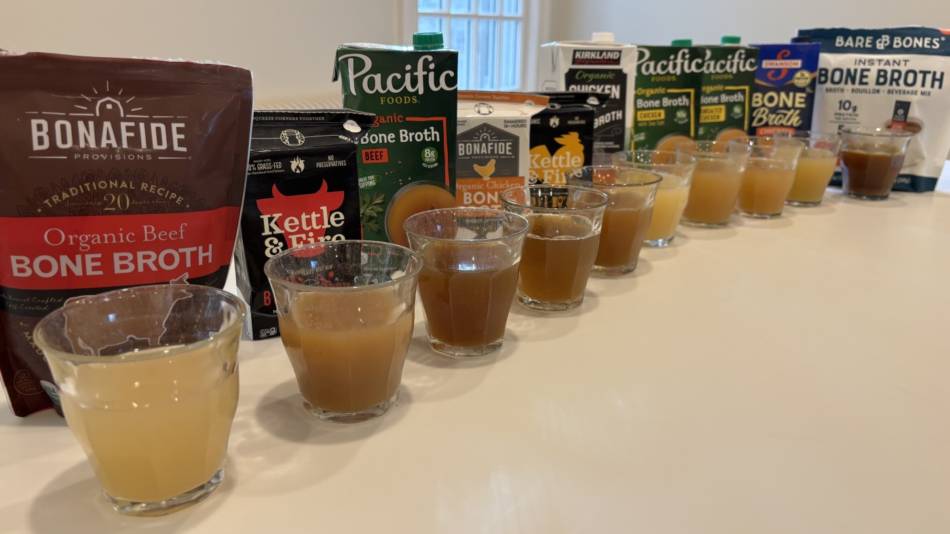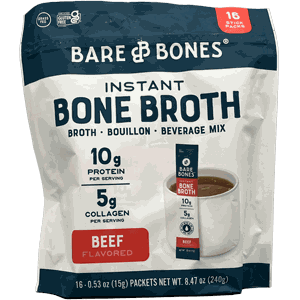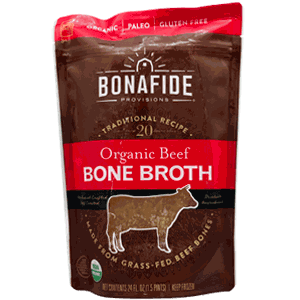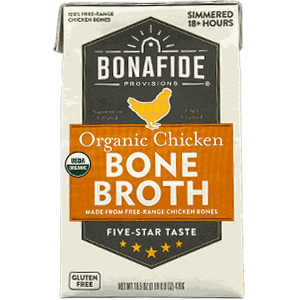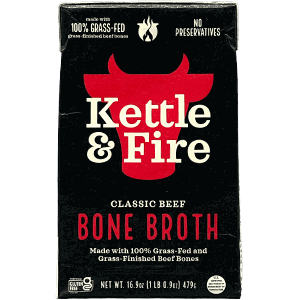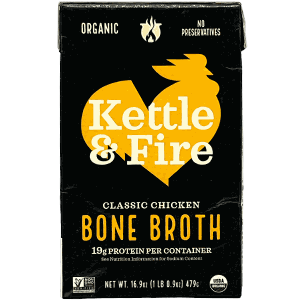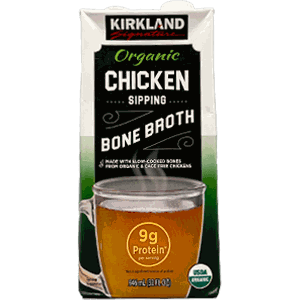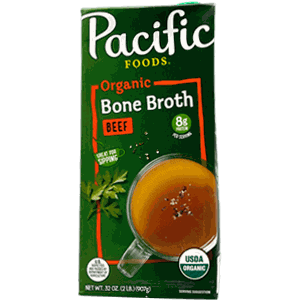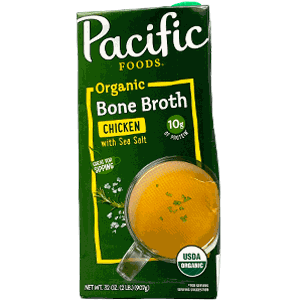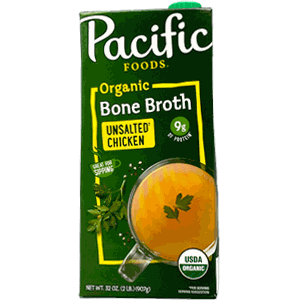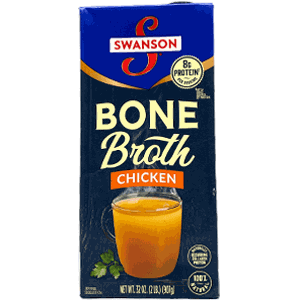Summary
What did CL's tests of bone broth products find?
The bad news: Only 6 out of 10 popular bone broth products passed our tests for quality. Two failed to pass because they provided much less protein than listed, one of which also contained much more sodium (an extra 63 mg) than claimed. A third product could not be approved due to unusually low collagen content, and another was not a true bone broth but a mixture of collagen, meat extract, and other ingredients. Across the products, amounts of sodium ranged from 104.2 mg in an unsalted product to over 800 mg. The good news: No product exceeded stringent limits for contamination with heavy metals (lead, arsenic, mercury or cadmium).
 Best bone broth?
Best bone broth?
CL chose a Top Pick for beef bone broth and a Top Pick for chicken bone broth based on quality, taste, and value.
What is bone broth?
Bone broth (made from simmering chicken or beef bones) can be a good source of protein — particularly collagen. Although vitamins and minerals are naturally found in bone broth, amounts are small — less than 5% of daily requirements. The mineral found in highest concentration is potassium. (See What It Is). Sodium naturally occurring in bone broth is about 100 mg per cup, but some have added salt, boosting levels to about 500 mg. Bone broth is also sold in powder form by dehydrating bone broth. Some products marketed as “bone broth” are not truly bone broth but mixtures of collagen with other ingredients.
What are the health benefits of bone broth?
Bone broth has been promoted for boosting the immune system and healing the digestive tract, although there is not much clinical information about the effects of bone broths. Nevertheless, research with collagen suggests that it may help build muscle, reduce joint pain, increase bone mineral density, modestly improve skin elasticity, reduce wrinkles and strengthen nails.
The protein in bone broth (including the collagen) significantly contributes to one's daily requirement for protein and provides essential amino acids after digestion. (See What It Does). A one-cup serving of bone broth can significantly contribute to your daily protein needs. A typical bone broth provides about 9 grams of protein per cup, although our tests showed amounts ranging from 3.8 grams up to 11 grams per cup. In terms of collagen, we found 1.3 grams to 11.5 grams per cup, with around 4 grams being most common. Clinical trials of collagen have generally used daily doses of 10 to 15 grams. (See What CL Found).
(See how bone broth compares to other sources of protein, such as whey, casein, soy, rice, pea and hemp in our Protein Powders and Drinks Review)
How much should I expect to spend on bone broth?
A cup of bone broth was found to range in price from $1.04 to $3.84, but the cost to get 5 grams of collagen from products ranged from $1.54 to $5.74. (See What CL Found).

